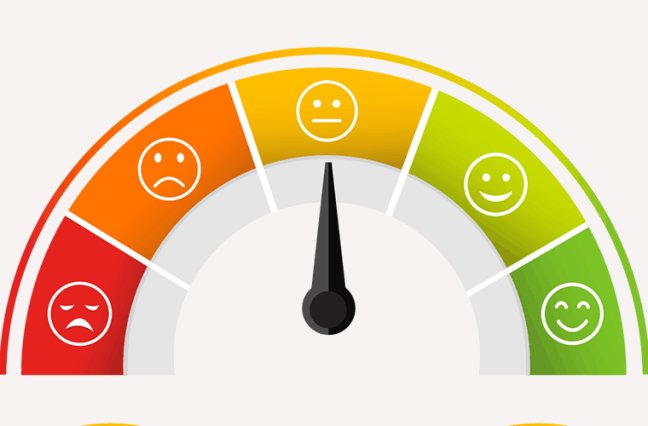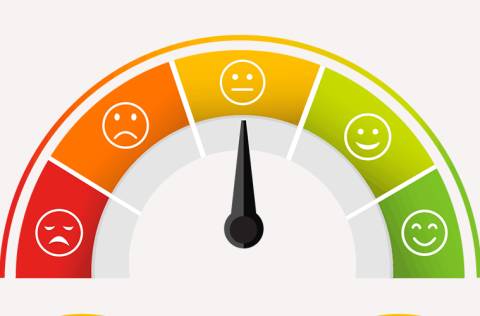CallMiner Product Innovation Series: Q1 2025
CallMiner's, Bruce McMahon, shares key product updates from Q1 2025. CallMiner AI Assist advancements, CallMiner Outreach, Bulk Export API enhancement...
CallMiner Outreach is here! |Learn about the future of CX

Solutions
Products
Customers
Solutions
Products
Customers
Resources
Company
Delivering excellent customer service is no longer enough if businesses want to succeed in today’s competitive landscape. Customer experience (CX) is the new driving factor for business growth and success and encompasses how a customer feels when they interact with your business. Thanks to the incredibly popular digital universe, customers have many ways to communicate with your brand. Delivering a positive customer experience across every touch point is crucial but often difficult. But how do you determine you are successful? We live in a metrics reporting world. NPS, CSAT, and CES are scoring methods your call center can use to track and calculate customer experience success.
Here is a wiki-like breakdown of each methodology:
A net promoter score (NPS) the easiest of the three to implement, only relies on the answer to one simple question. How likely are you to recommend our brand to a colleague, family, or friend?
The customer rates your brand on a scale of 1 to 10 and if they choose to provide more information, they can. This scoring method is based on the principle that customer’s fall into three different categories
To calculate your NPS score, take the percentage of promoters minus the percentage of detractors. The higher your NPS score, the better.
A customer satisfaction score (CSAT) utilizes a series of questions to determine a customer’s overall satisfaction with your brand – including their experience and the products or service purchased. These questions are personalized to address the customer’s most recent experience. The questions are typically phrased asking the customer to rate their satisfaction with XYZ. For example:
How would you rate your satisfaction with your recent customer service phone call?
To respond, customers choose from a list of provided responses ranging from very dissatisfied to very satisfied.
To calculate the CSAT score, you use the below formula:
(# Of Satisfied Customers/ # of survey responses) x 100 = CSAT Percentage
Using the CSAT scoring method allows you to personalize the survey based on each unique customer and transaction, but it won’t show if the customer is completely satisfied with their ongoing experience with your brand. To understand that, companies need to utilize one of the other scoring methods or track the customer’s various experiences over time.
The customer effort score (CES) identifies how much effort a customer makes to have their needs fulfilled by your company by asking one question.
How much effort did you have to make to handle your request?
They answer on a scale of one to five, with one being nominal effort and five being a high amount of effort. Companies that utilize this scoring method are more focused on meeting customer expectations instead of delivering a positive experience. If a customer has to put in a lot of effort to have their needs met, they tend to be dissatisfied with the experience. The CES allows you to identify trends in high amounts of effort – a specific product/service, call type, or customer service agent, so you can make changes where necessary.
Deciding which method to implement is often a challenge for businesses. Which one you use, depends on what you are trying to achieve by scoring customer satisfaction.
CSAT is best to use if you want to track customer happiness in the moment, NPS is the better choice if you want to understand how customers feel about your overall brand, and CES is best if you want to track the amount of effort a customer puts in to get their needs met. Whichever method you utilize is only valuable if you pay attention to the data and make changes when necessary.
Speech analytics software helps organize the data you collect when measuring customer satisfaction and experience because it captures data from multiple touch points including phone calls, email, and chat. Businesses can establish criteria to track during each conversation, score the calls, and quickly analyze the results from the calls along with the survey responses.
Tracking customer experience is more important than ever. Businesses may not be able to fine-tune their customer experience with only one scoring technique. You may need to test over time to see which gives you more valuable information for your business’s success.
CallMiner is the global leader in AI-powered conversation intelligence to improve customer experience (CX). CallMiner delivers the industry’s most comprehensive platform to analyze omnichannel customer interactions at scale, combining deep domain expertise with cutting edge AI analytics and machine learning. By uncovering better intelligence, CallMiner enables companies to identify areas of opportunity to drive better experiences, ultimately leading to business improvement, growth and transformational change. CallMiner is trusted by the world’s leading organizations across all major verticals including technology, media and telecom (TMT), retail, manufacturing, financial services, healthcare, and travel and hospitality.

